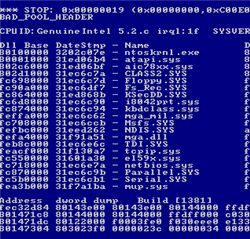Fast Fix
by in Feature Articles on 2010-08-31 "Do you think it's wise to have consultants running our IT department?" Holger asked. It was an honest question, worded as diplomatically as possible. Holger's company had more consultants on hand than actual IT staff.
"Do you think it's wise to have consultants running our IT department?" Holger asked. It was an honest question, worded as diplomatically as possible. Holger's company had more consultants on hand than actual IT staff.
"Holger, these folks are experts," his manager replied. "It isn't cost effective to hire-on this level of expertise full time. We may pay a little more up front, but when we don't need the consultants anymore, we can hand it off to our internal people."

 Jul 10
Jul 10

